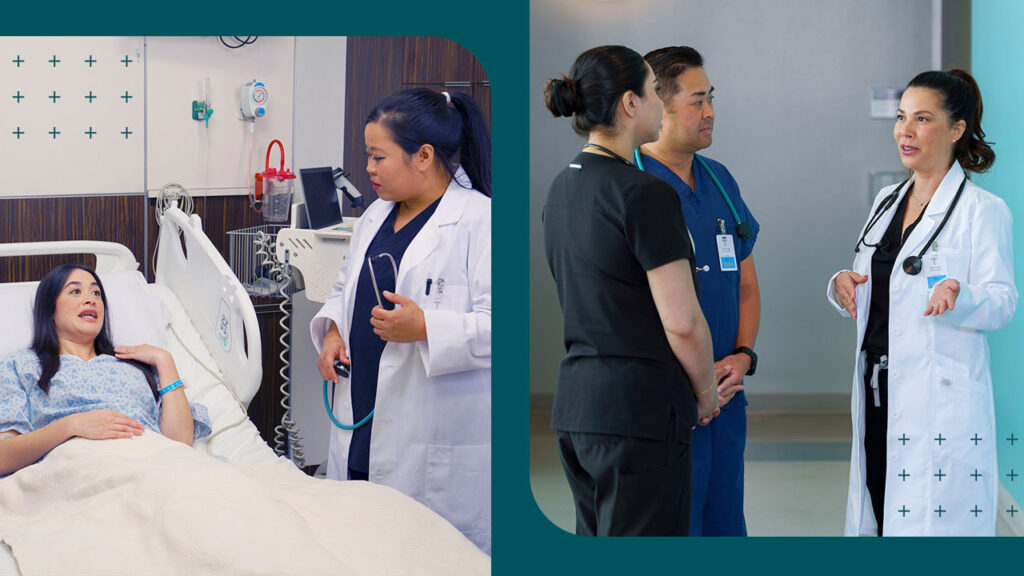Achieving a master’s-level degree in nursing requires focus and drive. It also comes with a range of specializations for a more focused course of study and practice. If you’re considering an advanced degree in nursing, consider also your personal strengths and affinities. Are you a natural leader? Do you love the act of learning and sharing knowledge? Maybe you’re a data wonk, or are most passionate about clinical practice.
Each of the above talents has an MSN degree to match, and each concentration fills a unique imperative in advanced nursing. The types of MSN nurses fall into four main buckets, and within each, the opportunity to concentrate with even more specificity.
Nurse Educator
Being a good educator is already a big part of the nursing profession: As a nurse, it is your responsibility to educate your patients about their conditions, treatment options, and ways to stay healthy. But who educates the nurse? An advanced practice nurse who specializes in nursing education.
Once you study to become a nurse educator, you pay it forward, passing your learnings, from lectures to labs. The MSN nurse educator degree prepares you to educate the next generation of nurses in the classroom, or to working nurses through clinical sessions. This MSN degree prepares you not just to command a classroom, but to help develop curricula and standards. Nurse educators are passionate teachers who take on the critical role of supporting aspiring nurses through their schooling, and provide continuing education for nurses already on the job.
As a nurse educator, you aren’t just the vessel for knowledge, you act as a role model. Many, if not most, nurse educators maintain some clinical-practice presence in addition to a faculty position in a school or teaching hospital.
Nurse Leader
Natural leadership is an uncommon talent, so there’s ample demand for nurses who love to take charge. This supervisory role is for independent thinkers with the aptitude and confidence to guide groupthink. A master’s in nursing leadership will help you develop acute organizational skills, so you can take on everything from organizing employee training and professional development to maintaining team morale. It requires a keen eye for recognizing talent to make hiring decisions, and the ability to make tough decisions when employee performance requires termination.
You’ll typically need an RN license and BSN degree in order to move forward to advancing your degree to an MSN. With this degree, you’ll graduate with the superior communication and collaborative skills you’ll need to lead.
Nurse Practitioner
NPs and APRNs (advanced practice nurses) tend to be the most patient-facing MSN nurses, engaged directly with patients and often acting as the primary point of contact and care. Many states allow nurse practitioners to practice with full practice authority and even own and operate their own medical offices.
Within the NP umbrella is a range of specialties, including family care (FNP), adult-gerontology (AGPCNP and AGACNP), pediatric, neonatal, and psychiatric (PMHNP). These areas of specialization require a concentration during study, with aspiring NPs choosing a track that prepares them for a very targeted career for a specific population.
Nurse practitioners are increasingly many patients’ choice for a PCP, in part because of accessibility, and in part because of the nurse-patient relationship’s reputation for empathy and compassionate care.
There are MSN nursing degrees that can be completed through an online program, which make it possible for a working registered nurse to advance their degree to a Master of Science in Nursing. Furthermore, an RN to MSN bridge program allows students to use their professional experience as registered nurses to complete bachelor’s courses and jump straight into specialized master’s-level coursework so they can complete their MSN degrees faster.
For more helpful information about nursing education and the profession, continue reading our blog!
WCU provides career guidance and assistance but cannot guarantee employment. The views and opinions expressed are those of the individuals and do not necessarily reflect the beliefs or position of the school or of any instructor or student.



